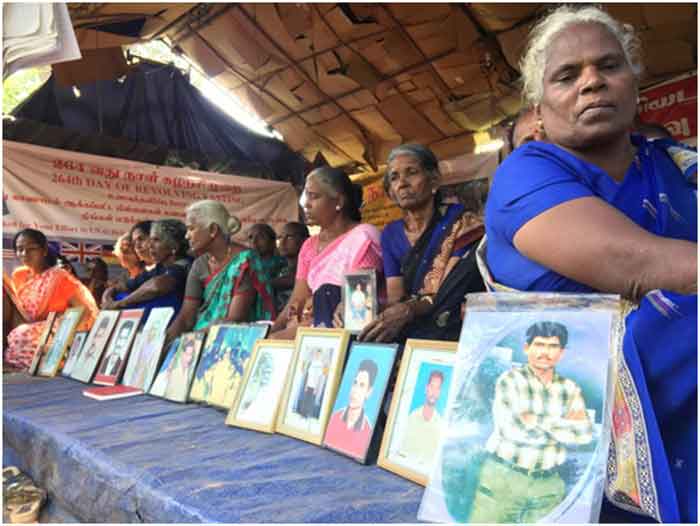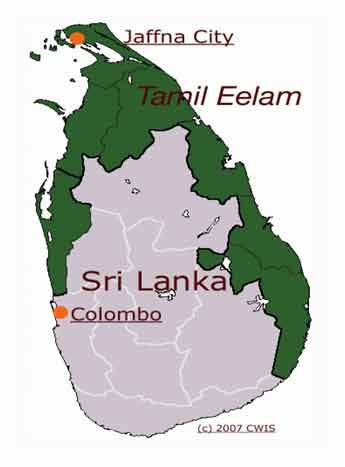
UNHRC in its 51st session passed a Resolution against Sri Lanka with 20 countries supporting and 7 countries opposing while other 20 countries abstained from voting.
This striking Resolution has vindicated and enhanced UNHRC’s reputation and its deep commitment to uphold human rights, accountability and justice to the victims of human right violations and genocidal crimes.
It is to be noted that the joint communique issued by the former President Mahinda Rajapaksha and former Secretary General Ban-ki-Moon on 28th May 2009 served as the foundation for a just, permanent political settlement for the Tamils. What followed is a sordid history of betrayals, breaches of promises and dishonoring of understandings by the various Sinhala Buddhist Governments.
As a .result the Tamil people are continuing to live as second class citizens struck by racial, linguistic, religious and cultural discriminatory legislations and practices coupled with these acts are the pangs of Sinhaliazation, Buddhisiszation, and Sinhala colonizations which are threatening the existence of Tamils like cancerous cells, all of these acts humiilatingly confirm the process of genocide which commened in 1948.
As a beacon of hope, UNHRC and western countries woke up from their slumbers and inactions and initiated several Resolutions in the UN and UNHRC commencing from 2012 and the latest one being Resolution 50/1 in September 2022. The fact that so far 9 Resolutions have been passed in UNHRC dealing with Sri Lanka’s human rights violations including war crimes etc, rule of law and International humanitarian Laws. The fact that the UNHRC is continuing to pass Resolutions against Sri Lanka clearly exposes and confirms the continued contemptuous defiance and non compliance of Sri Lanka even rejecting them and all the Recommendations.
However, these Resolutions have to some extent acknowledged the ‘bad governance factors’ and the root causes which brought Sri Lanka to the increased attentions of UNHRC and UN. Though the underlying factors mentioned in the Resolution had not been detailed, they are well known and they stand as severe hurdles difficult to cross unless Sri Lanka goes to eliminate the roots and branches namely the Sri Lankan Governments’ obsession to cling on to preserve and uphold communalism, racism, Buddhism and majoritarianism.
The first flag of Sri Lankas’ journey to bad governance was hoisted with the passing of the Sinhala Only Act of 1956 which remains as the root and core cause affecting the lives of Tamils and also Muslims while jolting the peace and harmony which have been prevailing among the communities.
The Resolution frankly and boldly calls upon the Government to address and cure these embedded and ruining malaises which are still continuing. The country’s economic, political, racial and religious disharmony are divisive which should be dismantled including the elimination of mistrust, suspicion and hostility prevailing among the communities.
Besides the above, the Council has correctly stated the “Deeping Militarization” in the North and East. Instead of thinning out militarization, Governments have proceeded with this divisive process and destabilizing as if there is a war going on between the Tamils and Sinhalese.
The Resolution also correctly pinpointed the upholding of entrenched impunity for serious human rights violations and abuses etc.
As stated in the Resolution, some of the above factors of bad governance continue to remain as the central obstacle to rule of law, reconciliation and sustainable peace and development to Sri Lanka. The Resolution also stresses the necessity and importance of transparency and accessibility for information.
The Resolution has however notably omitted the following crucial and core issues.
- The languishing of more than 200 political prisoners detained under the draconian Prevention of Terrorism Act [PTA] who are in jails for many years without trial.
- The ignored and repeated calls for the repeal of the Draconian PTA.
- The necessity of an independent internal investigative mechanism.
- Referral to the International Criminal Court [ICC] as recommended by UNHRC former High Commissioner Madam Jasmin Sooka.
- Imposition of sanctions on alleged war criminals.
- Elimination of state discriminatory practices against minority communities particularly Tamils.
To sum up, the root causes of Sri Lanka’s ills are caused due to the entrenched evils of communalism, racism, majoritarianism and impunity coupled with Sinhalization, Buddhisization and colonization all of which continue unabated with the blessings of the Sri Lankan Governments with no light seen at the end of the tunnel.
It is seven years since [2015] the first UNHRC Resolution against Sri Lanka was passed and with Sri Lanka always succeeding employing dilly dallying tactics along with noncompliance and evasion doling out various lame excuses and hollow promises to implement the Recommendations.
Thus the UNHRC and the UN are duty bound to ensure the implementation of this Resolution within the two years period given to Sri Lanka without accommodating any derailing excuses of Sri Lanka. It is also suggested that a UNHRC monitored mechanism must be initiated to supervise and report on progress made by Sri Lanka regarding the implementation of all Recommendations.
Thambu Kanagasabai, LL.M {London] Former Lecturer in Law, University of Colombo, Sri Lanka.
















































